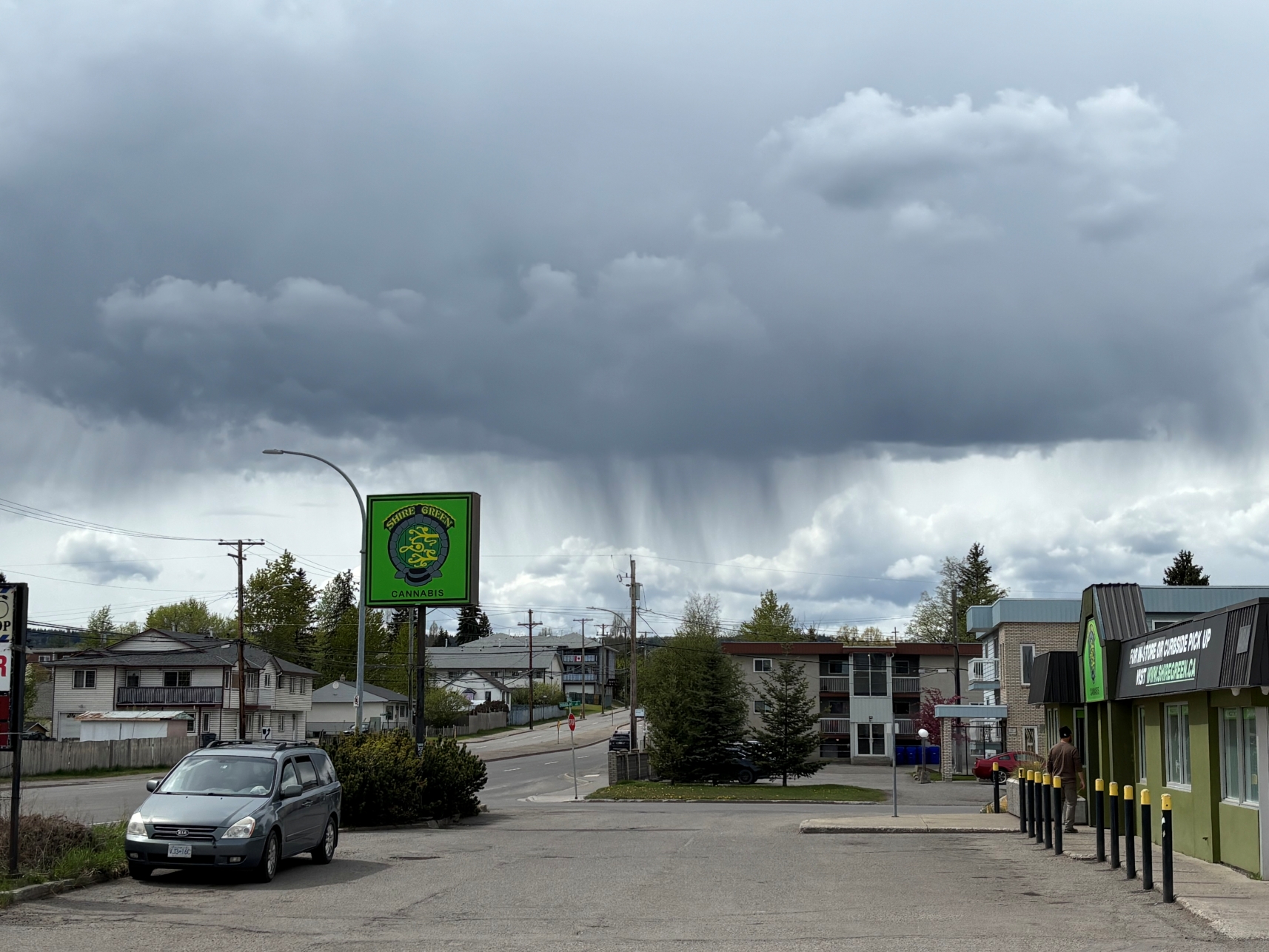Wisps of Water

I was stopped at a gas station a couple weeks ago and noticed that rain had begun falling towards the west. It is not every day you get dark collapsing clouds contrasted with a whiter backdrop this clearly, so I took a quick click.
In case you have not heard, Canada is on fire (again and on schedule). The prairie provinces are bone dry and alight. Every bit of rain during the warmer months melts the heightening anxiety among the collective.
Here in B.C., the fire season never truly stopped. The blazes in the far northeast of the province have been burning since last year, as an example. But things will slowly get worse. Every time I do a pre-summer drive from Prince George to Vancouver, as I did in mid-May, I gain an understanding of how bad the wildfire summer is likely to be. Those of us who have even a modicum of experience repeatedly surveying the land during critical periods can get a good sense of conditions.
The equation is simple – the greener, the better. We know it will get hot, we know our effect on the environment, and we know that aside from random dry lightning, people will continue to make stupid mistakes. I have rarely driven past an entirely yellowed or golden-browned B.C. Interior landscape and not seen it become a tinderbox. It does not mean mass evacuations or grand impacts to civilization are guaranteed, but it does not bode well. This year, things are looking bad. Not 2023 bad, which was the worst fire season on record, but bad enough. I foresee opening up CBC News in a couple months and having déjà vu, except I will be reading headlines pertaining to our backyard rather than Alberta, Saskatchewan or Manitoba.
The problems stem from fossil fuel addiction (on which B.C. is doubling down), but there are other issues. We still, for some reason, let industry voices lobby us into terribly destructive policies. More short-term, reactive thinking that does not take into account that we save tons of money, ensure sustainability, and foster resilience in the face of massive challenges by embracing proactive approaches. But it seems, deliberate mismanagement of natural resources is a profitable enterprise. Until, of course, we lose what is truly valuable and find what we have saved has no value.
Today’s entry: a downpour in the distance. A sprinkle on scorched earth.
Further notes: